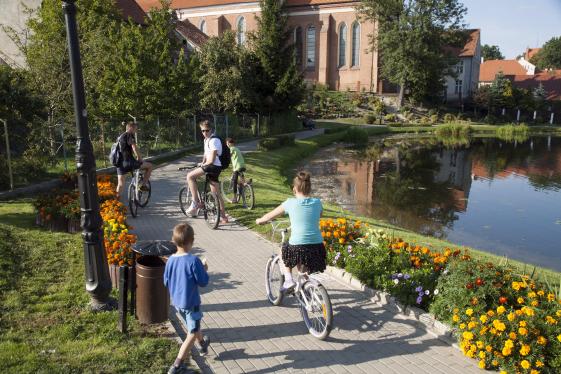July
BIG CITIES LEARN SOMETHING NEW FROM SMALL TOWNS. CITTASLOW NEIGHBOURHOODS LAUNCHED

The Cittaslow model, which was created and developed in small villages and towns, is becoming increasingly appealing to large metropolises.
At the last international online meeting held in the past few days, the three hundred Cittaslow mayors approved the new Cittaslow Metropolis experimental project, which lays the foundations for the qualification of "slow neighbourhoods" in large cities.
From today until June 30, 2022, a yearlong pilot project in Izmir (TR) will be carried out. This project will involve three districts under the guidance of the Mayor and Vice-president of Cittaslow, Tunc Soyer.
The time has come to bring "positive slowness" even to the world's great megacities. Also driven by the consequences of the pandemic and by the desire to reclaim living spaces, millions of metropolitan citizens consider small "Slow" cities from a new point of view, with the aim of bringing the methods that create sustainability and good living in three hundred cities throughout 31 countries.
"If metropolises as such can never be completely ‘Cittaslow’, they can nevertheless adopt new approaches and projects that increase the quality of life, public health and social cohesion. Ultimately, this approach would make downtown neighbourhoods as well as the interconnected communities in the outskirts more "human" and suitable for people of all ages who live and work there. This is the Cittaslow spirit that we want to pass on to metropolises. Since its first founding Manifesto in 1999, Cittaslow stated the objective of setting the cultures of large, medium and small cities die by side: today we are taking this decisive step ", stated Mauro Migliorini, Cittaslow International President and the Mayor of Asolo, Italy
But how can life in metropolises be slowed down? The solution is to make big cities slow and small. To decentralise them. To turn neighbourhoods into small towns, into Cittaslow Neighborhoods that are made for everyone and by no means elitist.
Neighbourhoods will be turned into villages where people can live, work, enjoy life, rest and be happy. Quality of life has become a determining parameter in the daily life of citizens. This period has brought on a reflection on the framework of new life habits. Citizens have gone back to basics, e.g. being asked to buy their food as close to home as possible. This means consuming local products.
“The importance of spending time at home, enjoying the simple pleasures of life, cooking with good local seasonal products. This has reinforced a wonderful local dynamic. The local producers have been very successful this year”, explains Christian Leclerq, the Mayor of Silly(Belgium), Vice-president of Cittaslow Int’l.
This period has made people more aware of their health. Many city dwellers have asked themselves: “why don’t we produce local food? when did we become so dependent to cars? why do we have so few parks, bike lanes, and walkable streets?”
Citizens realized they need places to walk, meet up and enjoy themselves. They also realized that they need neighbours and friends to help them in these difficult times. The pandemic showed everyone that survival as selfish individuals is impossible, and community is essential. The global pandemic motivated citizens to slow down big cities even more.
“As you know, this year we have been working on the Cittaslow Metropolis concept with the working group established by the Cittaslow International headquarters. We tried to find answers to these questions: is it possible to slow down a big city? How can it be done? What should the priorities be? How can we define slow living in a metropolis? Our objective was to increase the quality of life in big cities by slowing them down, thus making life easier, just like in “Slow Cities”. We are going to start the Cittaslow Neighbourhood program with three pilot neighbourhoods. We will create sustainable neighbourhoods, decrease forced motorized mobility, enable social cohesion and adapt the multi-functionality of spaces.
The program aims to create Cittaslow in metropolises, where people can enjoy themselves, meet up, participate in cultural and sports activities, and live a healthy and safe life. Residents will be able to meet basic needs within a short walking distance or a bicycle ride”, stated Tunc Soyer, Mayor of Izmir and Cittaslow International Vice-president.
ABOUT CITTASLOW METROPOLIS WG
This program requires the collaboration of several stakeholders. The WG Cittaslow Metropolises include contributions from Korea, France, Italy and other Cittaslow as well as the Izmir University of Economics experts and the international scientific committee from the working group established by the Cittaslow International headquarters.